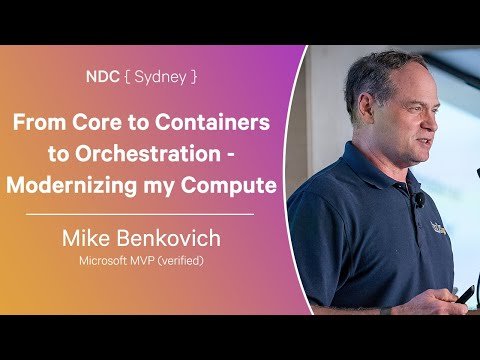At this NDC Conference in Sydney, Australia, the audience may gain valuable insights into the evolving landscape of Azure’s compute options, with a focus on containerization and orchestration. Mike Benovic, a seasoned Cloud Consultant and former developer evangelist for Microsoft, leads this session. Mike draws on his extensive experience, including his work with Visual Studio and his roles as a LinkedIn Learning instructor with courses on infrastructure as code, DevOps, and .NET.
The video begins with Mike introducing himself and sharing his journey from Microsoft to cloud consulting. He then delves into the progression from monolithic applications to microservices, highlighting the complexities and benefits of each approach. Mike emphasizes that transitioning to microservices requires careful planning and understanding, not just managerial directives.
Throughout the video, Mike provides practical demonstrations using Visual Studio Code and various tools to illustrate the concepts of containerization and orchestration. He shows how to create and manage Docker files, use Docker Compose for automated deployments, and leverage Azure’s container services for efficient application hosting. Viewers will see how to configure environment variables, set up service discovery, and use dependency injection to streamline their development processes.
Mike also touches on the trade-offs between different compute options in Azure, such as App Services, Azure Container Instances, and Kubernetes (AKS). He explains how each option fits into different hosting models and scalability requirements, providing a clear understanding of when and why to use each service.
The session highlights Project Tye and its successor, Project Aspire, which aim to simplify microservice development and deployment. Mike demonstrates how these tools can help developers manage complex microservice environments without deep expertise in Docker or Kubernetes.
By the end of the video, viewers will have a solid understanding of how to modernize their applications using containerization and orchestration. They will be equipped with the knowledge to make informed decisions about their compute options in Azure, ensuring they can build scalable, reliable, and efficient applications in the cloud.


